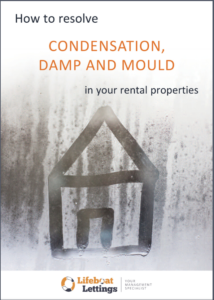
More detail on the long-awaited Renters Reform Bill has recently been announced by the government in a white paper entitled ‘A Fairer Private Rented Sector’. Issued by the Department for Levelling up, Housing and Communities, the full proposal issued on the .GOV site, is a huge document covering a range of proposals. Read on to find a summary of the main points:
As a key pillar of the government’s much heralded ‘Levelling up’ program, tackling inequalities in housing – particularly access, quality and security of tenure – has for a long time been a top priority. The recent white paper targets a number of key areas in a ’12 point plan of action’:
Abolition of no-fault eviction
Top of the list – and key to providing more certainty for tenants – is the abolition of the Section 21 route to repossession or so-called ‘no fault’ eviction. A tenancy will only end if a tenant ends it or the landlord has valid grounds for possession.
Modifications to Sec 8 grounds for possession
In part as compensation for abolition of Sec 21 route to possession, the Sec 8 route has been revised and strengthened to a certain extent, with new mandatory grounds being added so that landlords can get possession of their properties when needed. New grounds relating to sale, persistent rent arrears have been added and grounds associated with anti-social behaviour have been strengthened.
Decent Homes Standard
The government is committed to increasing the quality of homes in the PRS and has proposed applying a Decent Homes Standard to bring standards up to those found in the social rented sector. The exact details of what constitutes a ‘decent home’ remain vague however the government’s document itself states: ‘To be ‘decent’ we will require that a home must be free from the most serious health and safety hazards, such as fall risks, fire risks, or carbon monoxide poisoning.’ Also the document goes on to state:
‘Landlords must make sure rented homes don’t fall into disrepair, addressing problems before they deteriorate and require more expensive work. Kitchens and bathrooms should be adequate, located correctly and – where appropriate – not too old, and we’ll also require decent noise insulation. Renters must have clean, appropriate, and useable facilities and landlords should update these facilities when they reach the end of their lives.
Also included in this section was a commitment to increasing the EPC level of all homes in the sector to level C or above but in a revised timeframe – by 2030.
It is obviously difficult to define this quantitatively, and as always the devil will be in the detail.
Rent Increases
The government has specifically committed to not introducing ‘rent control’, stating (correctly) that it is proven not to work and will have a damaging effect on the PRS. However, it is also taking steps to outlaw mandatory and fixed rent reviews, focusing instead on limiting rent reviews to a yearly process (presumably using the current system – Sec 13). Tenants will also have an easier process for challenging perceived excessive rent increases at the First Tier Tribunal, which will be banned from setting a revised rent above the proposed rent.
Tenancy changes
The tenancy system will be simplified with the use of fixed term tenancies (typically 6 or 12 months) brought to and end. Instead, all new tenancies will be open ended or ‘periodic’ tenancies. Tenants will be required to give 2 months-notice to end a tenancy.
Redress scheme and dispute resolution
The intention is that all landlords will be members of a new Ombudsman scheme. This will enable tenants to raise concerns directly to this group and have disputes resolved quickly through arbitration rather than ending up in court.
Property Portal
All private landlords will be required to join a centralized property portal. The portal will be a central repository for all information relating to property letting to enable landlords to understand their responsibilities and also enable landlords to demonstrate compliance with legislation.
Court efficiency
The government is committed to improving the efficiency of the court process for those disputes where this is the only route to resolution. It is envisaged that by directing minor disputes to arbitration, many issues will be dealt with before they reach court, thus improving the speed of the system overall. The government also plans to investigate the court process and system generally, to see where any other inefficiencies can be addressed.

No blanket bans on certain tenant groups / pets
Landlords will no longer be able to use restrictive advertising practices and criteria, such as ‘no DSS’, ‘no pets’, ‘no children’ and will need to fairly consider all applicants. Landlords will have to consider an application from an existing tenant to have a pet. Tenants will be expected to take out or pay for an additional insurance policy to cover any increased damage from the pet.
Market-lead solutions to ‘passport’ deposits
Lifetime deposits seem to be back on the table, as the government announced that they will explore ‘market lead solutions’ that enable tenants to port their deposit from one property to another as they move house.
Increased local authority enforcement powers
Finally, the government intends to increase local authority enforcement powers to route out criminal landlords.
Conclusion
There has been a lot of detail communicated and, we – like you – will be pawing over this detail in the coming months to clarify exactly how this is going to be rolled out and to understand what the implications will be for the sector. Our initial thoughts are, that whilst we welcome efforts to ‘clean up’ and to a certain extent, regularize and improve the industry, we are concerned that many of these measures will simply add increased cost to landlords, whilst at the same time removing their rights and ability to charge an appropriate price for their product and decide who they rent their property to. We would encourage you to read the full detail of the white paper and we would be interested to hear your opinions. So get in touch.




